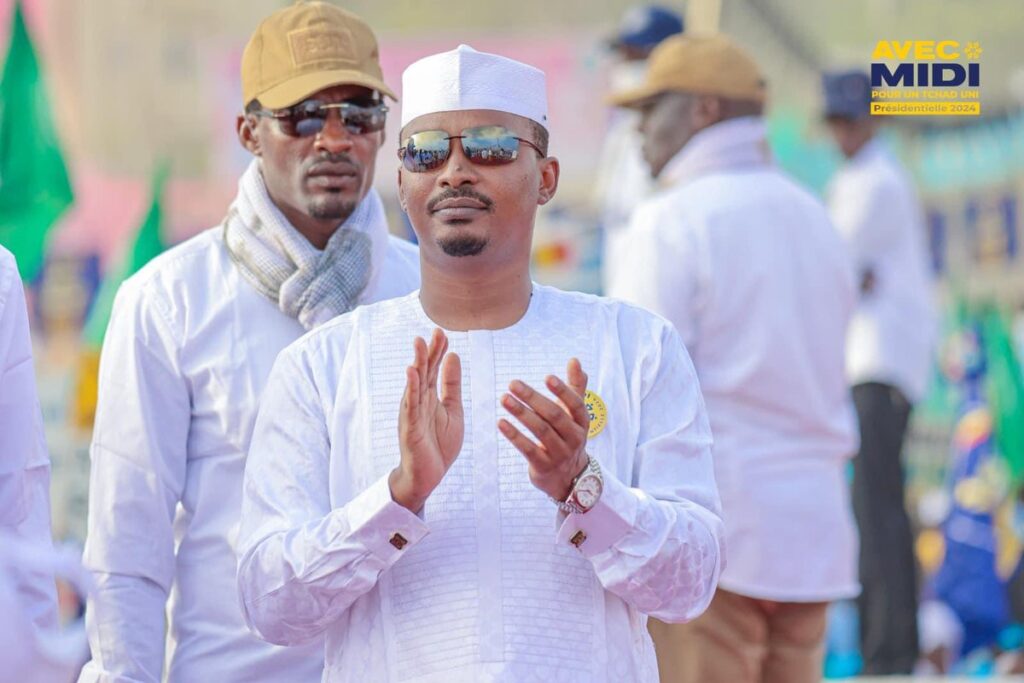Early Life and Military Training
Mahamat Idriss Déby, often known as Mahamat Déby Itno, was born on January 1, 1984, in Faya-Largeau, northern Chad, into one of the country’s most powerful political families. He is the son of the late President Idriss Déby, who ruled Chad for over 30 years. Growing up in a political family, Mahamat was exposed to the intricacies of power and leadership from a young age. Like his father, he pursued a military career, receiving training both in Chad and abroad. He attended the prestigious French military academy, where he honed his skills and solidified his commitment to serving his country in the armed forces. Mahamat’s early life and education were marked by a sense of duty, shaping him into the person who would one day inherit his father’s mantle.

Military Rise and Leadership Roles
Mahamat Déby’s career in the military mirrored that of his father in many ways. He swiftly ascended through the ranks, gaining significant experience in combat and strategic leadership. As a young officer, he was part of several military campaigns aimed at stabilizing Chad and defending it from insurgencies and external threats. Over the years, Mahamat became known for his strong leadership in military operations, especially in the fight against rebel groups and jihadist movements that plagued the Sahel region. In 2013, he was appointed head of the National Security Agency (ANS), Chad’s internal intelligence service, which gave him significant influence over both military and domestic security affairs. By the time of his father’s death, Mahamat had become a key figure in Chad’s military leadership, trusted by many for his discipline, tactical intelligence, and loyalty to the state.
The Death of Idriss Déby and Transition to Power
In April 2021, Chad’s long-serving president, Idriss Déby, was killed in battle while fighting against rebel forces from the Front for Change and Concord in Chad (FACT). His death sent shockwaves through the country and raised immediate questions about the future of Chad’s leadership. In the aftermath, Mahamat Déby was quickly named the head of the Transitional Military Council (TMC), a body formed by the military to govern the country following his father’s death. This decision to place Mahamat in power was largely viewed as an effort to maintain continuity and stability within the country, as Chad had long been ruled by the Déby family. Within hours of his father’s death, Mahamat announced that a transition to civilian rule would eventually take place, but that he would oversee the country during an interim period of 18 months.
Managing Chad’s Political Landscape
Mahamat Déby’s rise to power has been controversial, with critics accusing him of perpetuating a dynastic regime and suppressing democratic reforms. His assumption of leadership was not by popular vote, and many in Chad’s political opposition and civil society have challenged the legitimacy of his rule. Despite his promises of democratic reform, Mahamat has maintained a tight grip on power, leading some to question whether the transitional government will genuinely pave the way for greater political openness or simply perpetuate the status quo. The TMC, under his leadership, has ruled with an iron fist, suppressing opposition movements, limiting protests, and using the military to enforce stability.
At the same time, Mahamat has sought to engage with the international community, particularly France and other Western powers, who had long been allies of his father. France, in particular, has provided military and diplomatic support to Chad, especially in its fight against insurgent groups in the region. While Mahamat has continued his father’s foreign policies, his leadership has also been marked by a recognition that Chad’s political and economic future may depend on striking a balance between maintaining stability and fostering gradual reform.
Security and Regional Influence
One of the key challenges Mahamat Déby faces is navigating the complex security landscape in Chad and the broader Sahel region. Chad has long been a crucial player in regional security, particularly in the fight against extremist groups such as Boko Haram, ISIS, and al-Qaeda affiliates operating in neighboring countries. Under his leadership, Mahamat has continued to position Chad as a key partner in the international anti-terrorism efforts, leveraging his country’s strategic importance to garner support from Western allies and regional partners. However, Chad faces numerous internal security threats, including insurgent groups and political unrest, and the TMC’s military response to these challenges has sparked both domestic and international concerns over human rights abuses and excessive use of force.
Mahamat’s leadership also comes at a time when the Sahel region is grappling with widespread instability, with countries like Mali, Niger, and Burkina Faso facing increased extremist violence and governance crises. Chad has been deeply involved in efforts to stabilize the region, with Mahamat continuing his father’s legacy of interventionism and support for regional security arrangements. Yet, the mounting challenges in the Sahel, coupled with Chad’s own political and economic issues, have made it unclear whether Mahamat can effectively navigate these complex dynamics and maintain his country’s role as a regional powerhouse.
Economic and Social Challenges
Economically, Chad remains one of the poorest countries in the world, despite its rich natural resources, including oil, gold, and uranium. The country’s economy has long been dependent on oil exports, but it faces major challenges, including falling oil prices, corruption, and a lack of infrastructure. Under Mahamat Déby, Chad has continued to grapple with issues of poverty, unemployment, and inadequate public services, with little progress on diversifying the economy. While Mahamat has promised to prioritize economic reform, the path to sustainable development is fraught with obstacles. The COVID-19 pandemic has only exacerbated these economic challenges, and the ongoing political instability has made it difficult for Chad to attract foreign investment or initiate large-scale development projects.
Mahamat’s government has faced criticism for its failure to address the country’s social needs, with many people in Chad feeling excluded from the benefits of the country’s resource wealth. Youth unemployment, poor healthcare, and a lack of educational opportunities continue to be significant issues for the population. The military’s control over the government has also created a situation where political power remains concentrated in the hands of the elite, leaving little space for genuine reform or grassroots change.
The Future of Mahamat Déby’s Rule
Mahamat Déby’s leadership is still in its early stages, and it remains to be seen whether he can navigate the complex political, economic, and security challenges that Chad faces. His ability to address the calls for democratic reform, alleviate economic hardship, and manage security threats will likely define his legacy. While he has promised a transition to civilian rule, many observers remain skeptical about the depth of this commitment, given his military background and the continued dominance of the military in the country’s political landscape. As Mahamat continues to govern, he will need to strike a delicate balance between maintaining control, responding to domestic pressures for reform, and securing international support to stabilize Chad and its role in the Sahel region.
